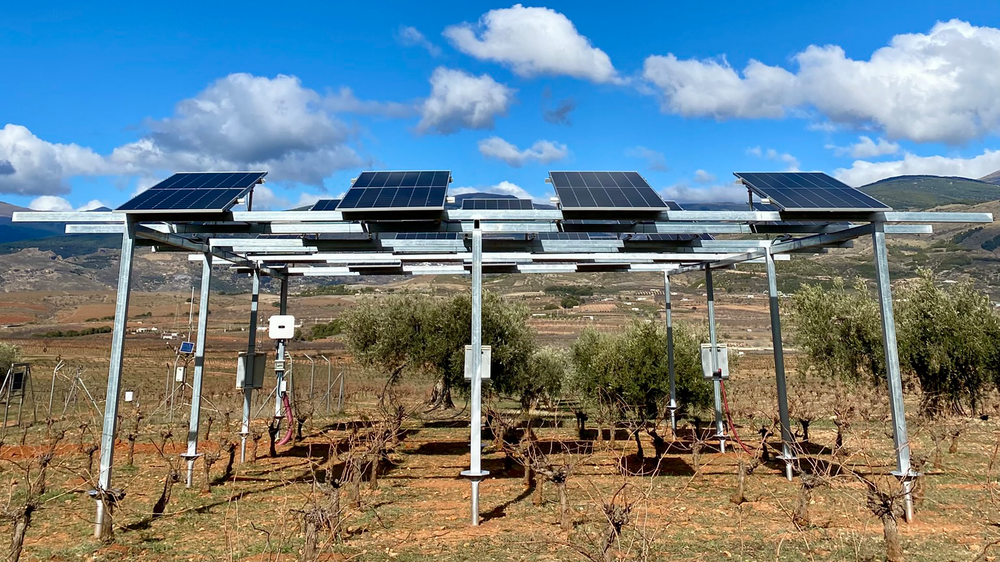Harvesting the sun, protecting the vines – innovation for sustainable agriculture


- In Almería (southern Spain), a pioneering pilot project has been installed. The agrivoltaic (APV) system combines photovoltaics with sustainable, organic viticulture and improves water and energy efficiency.
- The German Aerospace Center (DLR) is investigating the effects on plant growth, soil conditions and climate adaptation to assess the potential of APV under different climate scenarios.
- With 18 PV modules covering 120 m² and a capacity of 10.8 kWp, the project strengthens the local energy supply and offers new approaches to climate-resilient agriculture and decentralised energy transition
How can a vineyard produce not only fine wines but also clean energy? In the southern Spanish province of Almería, we have installed an innovative agrivoltaic system (APV) together with the renowned vineyard Cortijo el Cura and the technology company Bettergy. The APV system in Almería is the first of its kind in southern Spain and plays a crucial role in research into sustainable energy systems.
The installation integrates photovoltaic energy with sustainable, organic viticulture. Solar panels provide shade, enhancing water efficiency, protecting vines, and generating renewable energy. It offers valuable insights into the interaction between photovoltaic technology and agriculture.
Protection against heat and drought through innovative technology
APV solutions are particularly promising in regions facing high drought risk and rising temperatures due to climate change. By providing shade and reducing evapotranspiration, they can help protect crops and support sustainable farming practices.
The APV system covers an area of approximately 120 m² and consists of 18 photovoltaic modules arranged in a checkerboard pattern. With a ground coverage ratio of around 40%, the system allows sufficient sunlight to reach the crops while providing shading benefits. The installed PV capacity is 10.8 kWp, contributing to renewable energy generation alongside agricultural production and strengthening the local energy supply.
Research for climate-resilient agriculture
The findings from this project help analyze future climatic developments and their impact on the efficiency of APV systems. Furthermore, the research provides valuable data to assess the potential of APV installations under various climate scenarios. This project offers innovative solutions for climate-resilient agriculture while supporting the transition to a more sustainable and decentralized energy system.
Dr. Natalie Hanrieder, Agrivoltaic Team lead at DLR, highlights the relevance of APV: "This field is of great importance to both the solar energy sector and the DLR. APV not only enhances land-use efficiency but also provides clean electricity for industrial applications, making it a key technology for the future."
To assess the impact of the APV system, the German Aerospace Center (DLR) is closely monitoring plant growth, soil conditions, and meteorological parameters using a variety of sensors. The data collected will be compared with a reference plot to analyze the benefits of APV in viticulture. Merlot vines are cultivated beneath the PV panels, providing a unique opportunity to study their development under these conditions.
"This project represents an important step toward more resilient and sustainable agriculture. By combining renewable energy with innovative farming techniques, we can create synergies that benefit both farmers and the environment," says Dr. Álvaro Fernández Solas, Research Scientist at DLR.
We look forward to sharing our findings and contributing to the advancement of APV solutions for a more sustainable future.
